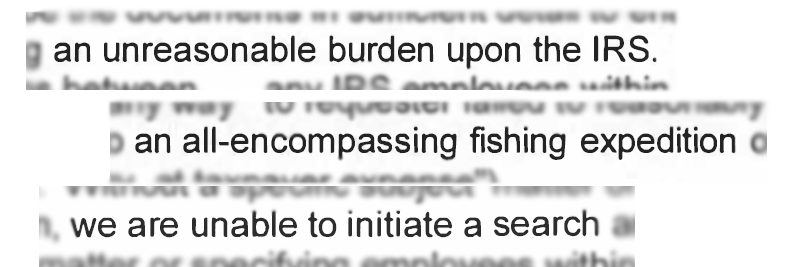Washington D.C. – Cause of Action Institute (“CoA Institute”) today released a staff report titled, “Sensitive Case Reports: A Hidden Cause of the IRS Targeting Scandal,” outlining how seven years after the IRS targeting scandal began, the rule that enabled this inexcusable behavior remains in place.
IRS targeting during the Obama administration involved invasive questioning and years-long delays in the processing of applications by non-profit organizations for tax-exempt status, and focused disproportionately on right-leaning groups, especially those with “Tea Party” in their name. The policy that enabled this targeting is an internal rule that singles out applications from any group interested in issues that might garner attention from either the media or Congress. In such cases, the merits of the application are ignored as IRS employees develop “Sensitive Case Reports” for consideration by those above them in the IRS hierarchy. In the targeting scandal, the existence of this rule allowed partisan concerns to overtake the process, leading to the unfair treatment of groups holding political viewpoints at odds with the Obama administration.
The report explains that unless and until that rule is removed from the internal manual used by all IRS employees, targeting of political opponents will remain a very real threat. Fortunately, removing the offending provisions is a simple process that can be started at any time and completed without the need for new legislation.
The full report can be accessed HERE
In Case You Missed It…
‘Media Attention’ and IRS Abuse
A simple rule fix could end partisan targeting tomorrow.
By John J. Vecchione | March 21, 2017
The Internal Revenue Service’s targeting of Americans for their political views may have ended with the Obama administration—or even with its exposure in 2013. But it could easily recur. Even now, an internal IRS rule singles out applicants for nonprofit status who might be tied to anything newsworthy.
The genesis of the targeting scandal was Section 7.29.3 of the Internal Revenue Manual. As noted in a report my organization is issuing Wednesday, this manual dictates how IRS employees handle everything from customer service to criminal investigations… Read More
For information regarding this press release, please contact Zachary Kurz, Director of Communications at CoA Institute: zachary.kurz@causeofaction.org
